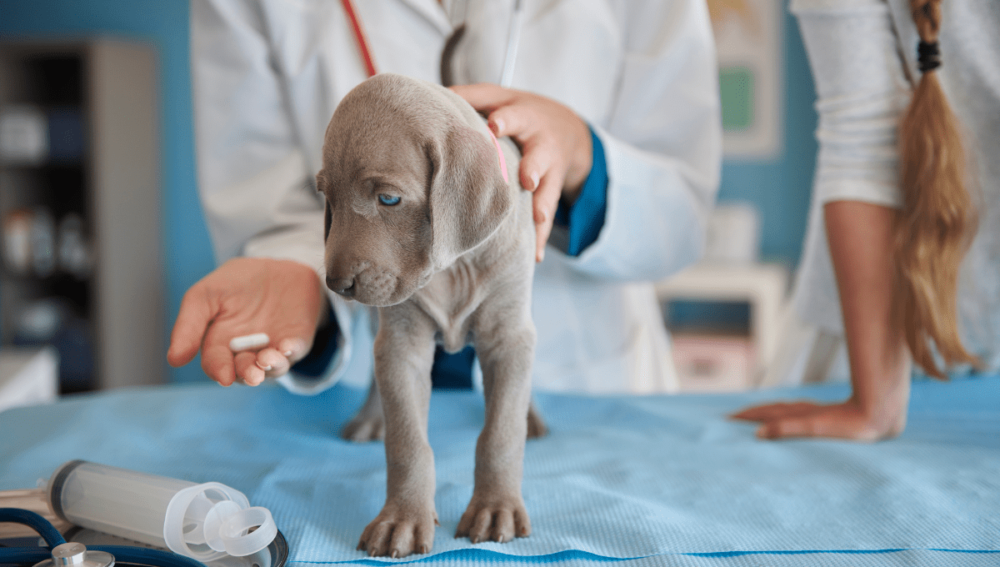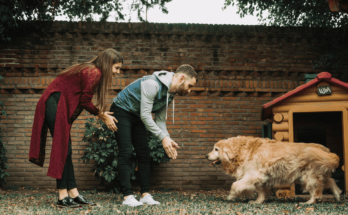Unveiling the Mystery of Why Is My Puppy Not Eating Much and Sleeping a Lot?
Introduction
Those floppy ears drooping, the tail still at rest – the once-boisterous tornado transformed into a sun-soaked slumber party. It’s a scene etched into every puppy parent’s memory, and it inevitably evokes the same worried whisper: “Why is my puppy not eating much and sleeping a lot?” Fear not, fellow fur guardians, for this “case of the sleepy snacker” is more common than you think, and we’re here to equip you with the detective skills to solve it.
A Closer Look
First, take a deep breath. Often, this sudden shift in your pup’s usual “eat, play, zoom, repeat” cycle points to growth spurts. Imagine building a skyscraper overnight – that’s essentially what your tiny titan is doing! Bones lengthen, muscles sprout, and brains blossom, all fueled by a bottomless pit of kibble (or so it seems). But amidst this construction boom, there are essential lulls – times when the little engineer needs to put down the tools and recharge. These rest periods, often characterized by increased sleeping and decreased appetite, are perfectly normal and shouldn’t raise alarm bells unless they become prolonged or accompanied by other concerning symptoms.
The Growth Stages Matter
Lab puppies grow rapidly, especially in their first few months. Be prepared to adjust their food quantities to accommodate their evolving nutritional requirements.
Read More: Can senior dogs eat puppy food
Unpacking the Puzzle:
But what if the slumber party turns into a month-long sleepathon? Beyond growth spurts, several suspects lurk behind your puppy’s sudden case of the munchies (or lack thereof). Each requires a gentle detective approach to uncover the true culprit:
Suspect number 1: Teething Troubles
: Imagine chomping on tiny daggers – that’s what teething feels like for a pup. This painful phase can make mealtime a nightmare, leading to a temporary drop in interest in food. Look for swollen gums, excessive drooling, and the sudden urge to gnaw on everything in sight. A soothing teething toy or some chilled kibble can offer relief and encourage those hesitant nibbles.
Suspect number 2: Tummy Woes:
Travel, vaccinations, and even a change in food can upset a sensitive puppy’s tummy. Vomiting, diarrhea, and lethargy are the telltale signs. If these persist, a trip to the vet is necessary to rule out any underlying issues and get your pup feeling better in no time.

Read More: Merrick Classic Puppy Recipe Dry Dog Food
Suspect number 3:Separation Anxiety:
Remember that your tiny shadow relies on your presence. Leaving them alone for prolonged periods can trigger anxiety, manifesting as decreased appetite and excessive sleep. Crate training and gradual separation exercises can help ease anxiety and restore those playful pounces.
Suspect number 4: Boredom Blues:
Just like us, even pups get bored! Lack of mental stimulation can lead to lethargy and a disinterest in food. Keep those busy minds occupied with engaging toys, walks, and training sessions. Remember, a tired pup is a happy pup, and a happy pup usually has a healthy appetite.
Suspect number 5: Environmental Stressors:
New noises, unfamiliar surroundings, and even boisterous playmates can stress out a puppy. This can manifest in decreased appetite and sleepiness. Provide a haven in your home, offer calming cuddles, and introduce new environments gradually to ease their tension.

Suspect number 6: Avoid Human Food Temptations:
Labradors might give you those irresistible puppy eyes during your meals, but it’s best to avoid sharing human food. Some items can be harmful to them.
Balancing Act: Protein, Fats, and More
Labradors thrive on a diet rich in protein and healthy fats. These nutrients support their muscular development, energy levels, and overall well-being.

When to Consult a Veterinarian:
When to Sound the Alarm: While some periods of decreased appetite and sleepiness are normal, there are times when it’s crucial to seek veterinary advice. If your puppy exhibits any of the following alongside these symptoms, don’t hesitate to call your vet:

-
Fever
-
Lethargy that lasts for more than a day or two
-
Persistent vomiting or diarrhea
-
Weight loss
-
Difficulty breathing
-
Abdominal pain
Fueling the Solution:
Remember, every puppy is unique, and their needs vary. Consult your vet for any concerns, and they can tailor a plan for your furry friend’s specific requirements. But beyond the bowl, consider these holistic tips to keep your sleepy snacker thriving:
- Routine Reigns Supreme: Consistency is key! Regular feeding times and exercise schedules help regulate their internal clock and appetite.
- Cradle of Calm: Designate a quiet, cozy space as their sanctuary. This provides a haven during times of stress or fatigue.
- Positive Reinforcement: Celebrate small victories! Reward good behavior with praise, cuddles, or even a few extra kibbles (but always consult your vet about portion sizes).
- Play: The Universal Elixir: Playtime is more than just fun; it strengthens your bond and provides essential mental and physical stimulation.
- Patience is a Puppy Parent’s Virtue: Remember, your puppy is still learning the ropes. Be patient, offer plenty of love and guidance, and trust that their appetite and energy levels will bounce back soon.

Frequently Asked Questions:
1. Is it normal for puppies to sleep a lot?
Yes, extensive sleep is essential for a puppy’s development. During this crucial stage, their bodies are rapidly growing and consolidating new information learned throughout the day. Puppies can sleep for 18-20 hours per day, interspersed with short periods of activity for play, meals, and elimination.
2. When should I be concerned about my puppy’s sleep and eating habits?
While some sleepiness and reduced appetite are expected, particularly after vaccinations or during growth spurts, certain situations warrant immediate attention:
- Complete loss of appetite: If your puppy completely refuses food for over 24 hours, it could signify an underlying medical issue.
- Excessive lethargy: A significant increase in sleep time or lack of interest in playtime exceeding one day can be a cause for concern.
- Concurrent symptoms: The presence of vomiting, diarrhea, fever, coughing, or abdominal pain alongside reduced appetite and sleepiness necessitates immediate veterinary consultation.
3. What could be causing my puppy’s lack of appetite and sleepiness?
Several factors can contribute to these symptoms, including:
- Vaccinations: Puppies often experience temporary side effects like fatigue and reduced appetite following vaccinations.
- Dietary changes: Introducing a new food too abruptly can upset the stomach, leading to decreased appetite.
- Underlying medical conditions: Parasites, infections, or other health problems can manifest as lethargy and loss of appetite.
- Stress or anxiety: New environments or separation anxiety can disrupt a puppy’s eating and sleeping patterns.
4. What should I do if I’m concerned about my puppy?
- Closely monitor their behavior: Carefully observe their eating habits, activity level, and any other concerning signs.
- Seek veterinary guidance: Do not hesitate to schedule an appointment with your veterinarian if their symptoms persist or worsen. Early diagnosis and appropriate treatment are crucial for your puppy’s well-being.
5. How can I prevent these issues?
- Gradual dietary transitions: Introduce new foods slowly to avoid digestive upset.
- Ensured hydration: Provide constant access to fresh, clean water throughout the day.
- Consistent routine and environment: Maintain a predictable routine and familiar environment to minimize stress for your puppy.
- Preventive veterinary care: Schedule regular vet checkups for preventive care and early detection of any potential health concerns.
By understanding these causes and taking proactive steps, you can help ensure your puppy thrives and enjoys a healthy life. However, remember that early intervention is crucial for their health. If you have any concerns about your puppy’s behavior or well-being, always consult your trusted veterinarian for personalized advice and guidance.
Conclusion:
In unraveling the mystery of “Why is my puppy not eating much and sleeping a lot?” it’s essential to approach the situation with a blend of understanding, patience, and vigilance. Puppies, like humans, undergo phases of adjustment, growth, and occasional stress. By recognizing the factors influencing their behavior and implementing supportive measures, you can ensure your puppy thrives in a loving and caring environment. However, always trust your instincts, and if in doubt, consult with your veterinarian to guarantee your puppy’s health and happiness.





5 Comments on “Why Is My Puppy Not Eating Much and Sleeping a Lot?| 15 Minuts Solution”